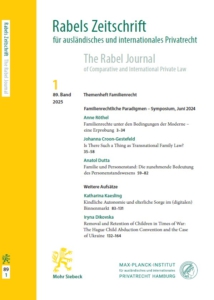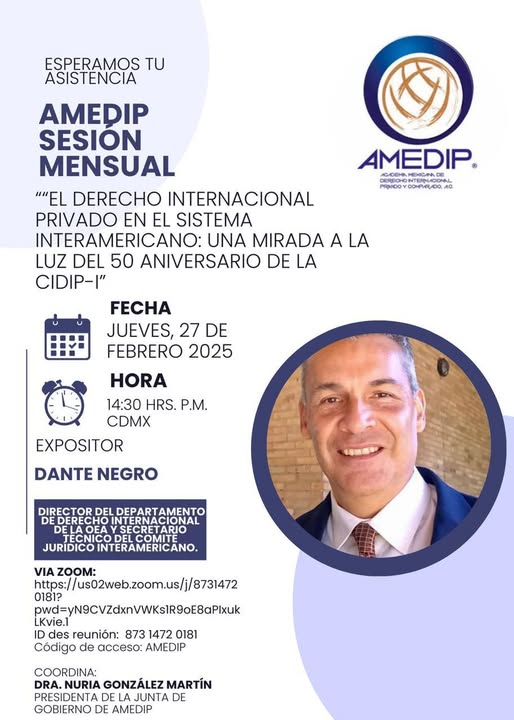Views
Data on Choice-of-Court Clause Enforcement in US
The United States legal system is immensely complex. There are state courts and federal courts, state statutes and federal statutes, state common law and federal common law. When I imagine a foreign lawyer trying to explain this system to a foreign client, my heart fills with pity.
This feeling of pity is compounded when I imagine this same lawyer trying to advise her client as to whether a choice-of-court clause will be enforced by a court in the United States. The law on this subject is complicated. It is, moreover, not easy to determine how it is applied in practice. Are there differences in clause enforcement rates across the states? Across federal circuits? Do state courts enforce these clauses at the same rate as federal courts? Until recently, there was no data that would allow a foreign lawyer – or a U.S. lawyer, for that matter – to answer any of these questions.
Over the past several years, I have authored or co-authored several empirical articles that seek to answer the questions posed above. This post provides a summary of the data gathered for these articles. All of the cases referenced involve outbound choice-of-court clauses, i.e. clauses that select a jurisdiction other than the one where the suit was filed. Readers interested in the data collection process, the caveats to which the data is subject, or other methodological issues should consult the articles and their appendices. This post first describes state court practice. It then describes federal court practice. It concludes with a brief discussion comparing the two.
Polish Constitutional Court about to review the constitutionality of the jurisdictional immunity of a foreign State?
Written by Zuzanna Nowicka, lawyer at the Helsinki Foundation for Human Rights and lecturer at Department of Logic and Legal Argumentation at University of Warsaw
In the aftermath of the judgment of the ICJ of 2012 in the case of the Jurisdictional Immunities of the State (Germany v. Italy: Greece intervening) that needs no presentation here (for details see, in particular, the post by Burkhard Hess), by its judgment of 2014, the Italian Constitutional Court recognized the duty of Italy to comply with the ICJ judgment of 2012 but subjected that duty to the “fundamental principle of judicial protection of fundamental rights” under Italian constitutional law (for a more detailed account of those developments see this post on EAPIL by Pietro Franzina and further references detailed there). In a nutshell, according to the Italian Constitutional Court, the fundamental human rights cannot be automatically and unconditionally sacrificed in each and every case in order to uphold the jurisdiction immunity of a foreign State allegedly responsible for serious international crimes.
Since then, the Italian courts have reasserted their jurisdiction in such cases, in some even going so far as to decide on the substance and award compensation from Germany. The saga continues, as Germany took Italy to the ICJ again in 2022 (for the status of the case pending before the ICJ see here). It even seems not to end there as it can be provocatively argued that this saga has its spin-off currently taking place before the Polish courts.
The Greek Supreme Court has decided: Relatives of persons killed in accidents are immediate victims
A groundbreaking judgment was rendered last October by the Greek Supreme Court. Relatives of two Greek crew members killed in Los Llanos Air Base, Spain, initiated proceedings before Athens courts for pain and suffering damages (solatium). Although the action was dismissed by the Athens court of first instance, and the latter decision was confirmed by the Athens court of appeal, the cassation was successful: The Supreme Court held that both the Brussels I bis Regulation and the Lugano Convention are establishing international jurisdiction in the country where the relatives of persons killed are domiciled, because they must be considered as direct victims.
THE FACTS
On 26 January 2015, an F-16D Fighting Falcon jet fighter of the Hellenic Air Force crashed into the flight line at Los Llanos Air Base in Albacete, Spain, killing 11 people: the two crew members and nine on the ground.
The relatives of the Greek crew members filed actions for pain and suffering damages before the Athens court of first instance against a US (manufacturer of the aircraft) and a Swiss (subsidiary of the manufacturer) company. The action was dismissed in 2019 for lack of international jurisdiction. The appeals lodged by the relatives before had the same luck: the Athens court of appeal confirmed in 2020 the first instance ruling. The relatives filed a cassation, which led to the judgment nr. 1658/5.10.2022 of the Supreme Court.
News
New issue alert: RabelsZ 89(2005)
 Issue 1/2025 of RabelsZ has just just been released. It contains the contributions to a family law symposium held at the Max Planck Institute in Hamburg in June 2024. All content is Open Access: CC BY 4.0 and more articles are available Online First.
Issue 1/2025 of RabelsZ has just just been released. It contains the contributions to a family law symposium held at the Max Planck Institute in Hamburg in June 2024. All content is Open Access: CC BY 4.0 and more articles are available Online First.
Anne Röthel, Preface to this family law special, pp. 1–2, https://doi.org/10.1628/rabelsz-2025-0003
AMEDIP’s upcoming webinar: Private International Law in the Inter-American system: A glance in the light of the 50 anniversary of the CIDIP (27 February 2025 – in Spanish)

The Mexican Academy of Private International and Comparative Law (AMEDIP) is holding a webinar on Thursday 27 February 2025 at 14:30 (Mexico City time – CST), 21:30 (CET time). The topic of the webinar is ‘Private International Law in the Inter-American system: A glance in the light of the 50 anniversary of the CIDIP’ and will be presented by OAS Director Dante Negro (in Spanish).
CIDIP is the Spanish acronym for the Inter-American Specialized Conferences on Private International Law. For a history of the CIDIP, click here. Read more
Book Launch: Philosophical Foundations of Private International Law – Oxford, March 19, 4pm-6pm
In 2024, Oxford University Press published Philosophical Foundations of Private International Law, edited by Roxana Banu, Michael S Green, and Ralf Michaels. The book represents the first inter-disciplinary engagement with questions of private international law from a philosophical perspective, covers a wide range of philosophical questions in private international law and brings philosophers in conversation with private international law scholars to demystify the analytical tools of each discipline in relationship to the other. More information on the book, including a table of contents, is here.
Now, Oxford University is organizing a hybrid book launch on March 19, 4pm-6pm. An introduction from the Editors will be followed by a discussion on key themes by Gabriel Encinas, Verónica Ruiz Abu-Nigm, Robert Stevens, Antonios Tzanakopoulos, and Emmanuel Voyiakis. More information on the event and on how to sign up for physical or virtual participation is here.


